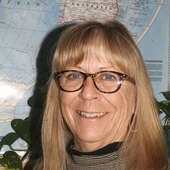- Research tips and McCook Brick Company- solid as a brick (12/16/24)
- Big Give appreciation and some railroad characters (11/15/24)
- George Randel becomes a landowner, gets married, and takes in a Buffalo Bill show (9/20/24)
- The memoirs of George F. Randel, early settler of Red Willow County (9/12/24)
- Vietnam War Memorial honors Nebraskans who served (6/13/24)
- McCook business promotions - just prior to 1893 stock market crash (5/30/24)
- Shall we dance? Meet you at the Gayway (12/8/23)
Part 2 of Red Willow County pioneer life: Learning to live on the prairie in a tent
Friday, September 27, 2019
I introduced you to a Red Willow County pioneer woman who in complete trust as a new bride, left her life in Kentucky to start her life as a homesteader in our county in 1872. This is my second installment of her writings which were published in the McCook Tribune in 1891. At this point, she and her husband, “J”, are traveling from Nebraska City to the banks of the Republican River.
“It was a monotonous uneventful journey of three hundred miles. Riding along, day after day, the rattling of the harness the only accompaniment to the sound of the horses’ feet, grew very irksome. The newness of everything was unpleasantly prominent, particularly in the suburbs of Lincoln and two little towns through which we passed. The sameness of the trip was broken when we reached the Platte Valley when that stream was bank full, from the spring thawing of snow in the mountains. The innumerable islands, big and little, all shapes and sizes, like dots of emerald on bands of silver, was a gladdening sight to eyes weary of miles and miles of the somber gray and brown prairie. One afternoon and night were spent at “Dobytown” near old Ft. Kearney. Here we found a striking instance of the largeness and ideas in the west. An enthusiast lived there who was actually publishing a little paper in the interest of what was to be “Centoria,” that would be National Capital!- the geographic centre of the U.S.!” –Alaska had not then been purchased.”
“Leaving this place, we traveled on reaching our destination on May 29th, having been two weeks on the road. We found the large party of nine wagons which started two weeks before we did, had only been in twenty-four hours. Coming to our “claim” – which had been located the fall before, when the Co. sent out the locating party, - we pitched our tent and here begun our new life. Into this nine-foot square tent we packed all we had, slept on the ground and for some weeks cooked by a campfire, until the dugout kitchen could be ready. On one occasion, held an umbrella over the fire to prevent a rain from putting it out; though this was rare, as during the first year it seldom rained, only at night. After the kitchen was ready and the stove set up, I recall with the allowable pride with which I drove nails in the post supporting the ridge pole and hung my pans and skillets and griddles and begun “our” housekeeping. At first, we spread a newspaper on the ground to eat on, but afterwards J. made a table of the box in which we brought books, with legs of poles. I remember with reverent thankfulness a blessing was asked on our humble beginnings, when we first sat down to this table with a cloth on it. We didn’t have much to eat in those days, and I, as a novice, was pleased with successful culinary experiments. For two years we had no cow, nor milk and butter, so my experiments were of a poverty-stricken kind.”
“In the front of the tent was a shade of poles and willows, to the side of the covered wagon bed, which was answered for our small storeroom. A gunny-sack was used for carpet and I kept it swept all around, so it had a feeling of home. Little by little conveniences were added and I felt quite proud of the seats which J. made; two three-legged stools and one four-legged. Two we covered with buffalo hide. During the fall when the soldiers left, we added to our possessions at their sale. A cotton wood bunk allowed us to rise from the ground to the dignity of a bed. A gunny-sack weatherbreak around and over the tent and a sheet iron stove made it comfortable for the winter; and when we had company some would get on the bed for the want of room.”
The third installment of this story will be covered next week. I am sure somebody

